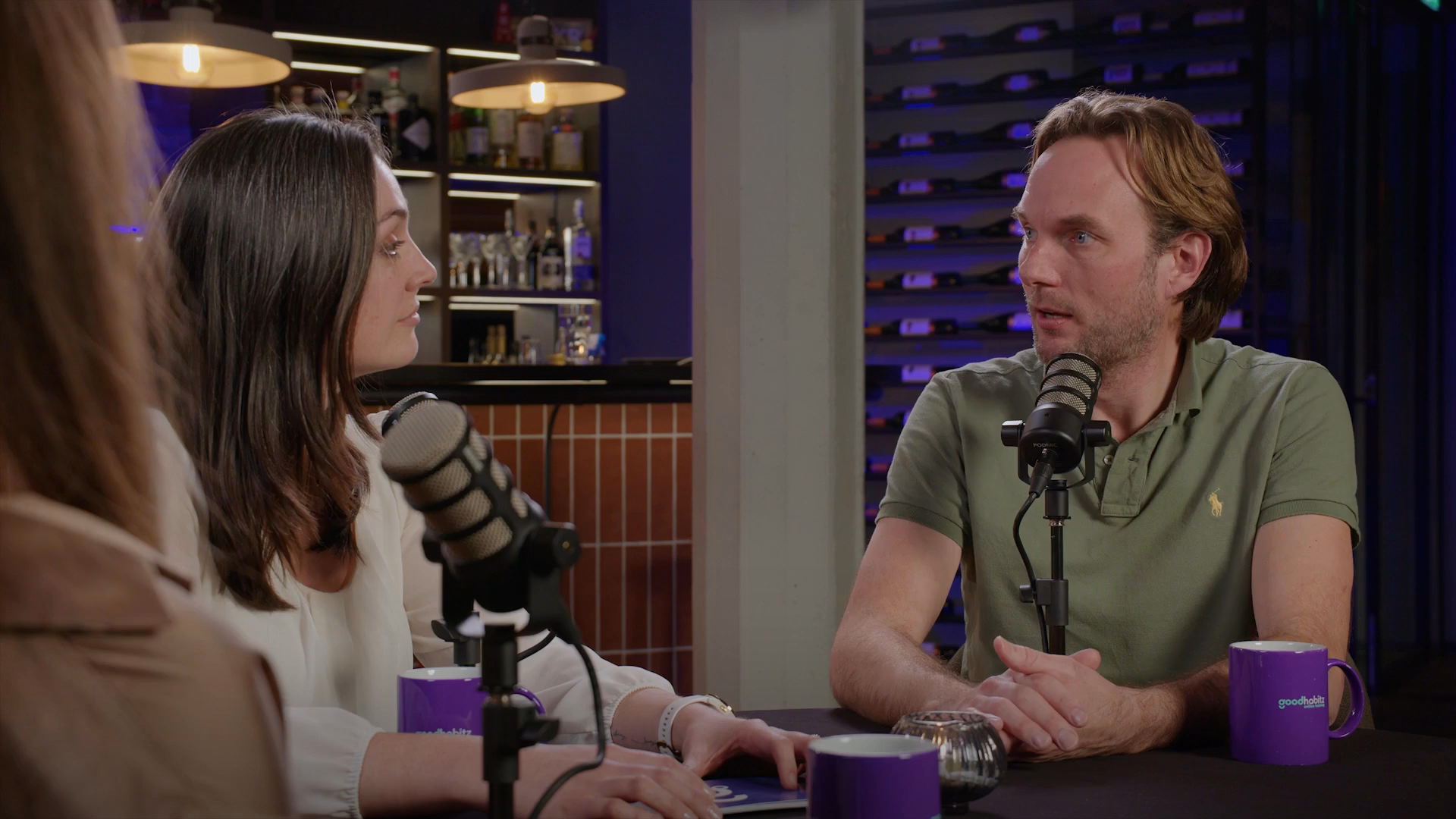Talking about mental wellbeing
with OpenUp founder Gijs Coppens and GoodHabitz HR Director Sandrien Boogaard.
The past ten years have seen a revolution in how companies think about mental health. To explore these changes, we sat down with GoodHabitz HR Director Sandrien Boogaard and Gijs Coppens, founder of the mental health support platform OpenUp. Gijs began his career as an engineer, but his experience of founding a company in Asia convinced him to also follow his interest in clinical psychology. He joined those two interests with OpenUp, which offers people easy access to reliable information about a wide variety of challenges. Both Gijs and Sandrien have come to believe that mental health plays a crucial role in the success of both people and companies.
Listen to our podcast to hear what their experiences have taught them or read their responses to the following four statements.
The COVID crisis brought the importance of mental health to the forefront of popular understanding. Most people had a friend or loved one who struggled with loneliness or anxiety during lockdown, even if they didn’t experience it themselves. The unique nature of the crisis also seemed to empower more people to discuss mental health challenges. Before the lockdowns, people tended to assume they were the only person struggling with their mental health, which was isolating. COVID highlighted the true universality of these problems.
Companies also began sharing mental health resources with employees in a way that they hadn’t before. From there, many employers began to see a way that they could help their teams and integrate mental health into their overall strategies. Mental wellbeing is a complex topic, but fundamentally, it’s about resilience and self-awareness. It’s not the absence of problems, but the ability to deal with them as they arise. It’s not a place that you find and hold, but a way of moving through the ups and downs of life.

Not only is it a skill you can develop, but it starts with learning who you are. You begin by seeing your own behaviour and being kind to yourself about your patterns. It’s a learning journey that develops with curiosity and a drive to understand how everything works. What is motivating you? What is driving the dynamics of the people around you? What are your personal values? What gives you energy and what doesn’t fit you?
Today, positive psychology is moving away from simply helping people cope to exploring what makes people thrive. One factor is the energy that comes from learning. The brain is just like a muscle that can be trained through repetition, in this case by concentration on a topic or a skill. Learning is also a social process; we learn from the people around us. That means organisations can create a learning zone, in which everyone works together to create, learn, and develop their skills. Creating an atmosphere of psychological safety will help people grow.

COVID was a game-changer in that mental health is now a common pillar in HR strategies, but there’s room to improve. Employers have started to see mental health as a benefit like retirement savings or a gym membership. It should be woven into the fabric of a company, rather than being a separate pillar to be budgeted and assigned to HR. The way to create a winning company is to create a winning mood of top performers in a healthy mindset.

Gen Z grew up with mental health as an openly discussed topic more than older generations. They’re bringing that sense of its importance to the workplace, but they’re also bringing some unique challenges. For example, this generation is overall less trained in concentration. They are the first generation to grow up with ever-present technology. And while it has always been challenging to go out into the world and begin building a life, statistics show that this generation has higher levels of mental health symptoms.
One area where Gen Z does seem to be having success is work-life balance, which is a cross-generational challenge. Gen Z are good at developing the ability to recharge outside of work. They are also looking for the flexibility to set their own hours, which can be a benefit and a challenge. That kind of autonomy can be helpful in fighting burnout, among other things, but it also means being explicit about deliverables and finding time for the team to work together. All of this can create an energetic environment within a company, but it needs time and buy-in from the top in order to flourish.
Ultimately, the best results come from people who are in their prime. By making mental wellbeing a priority, companies can create winning environments that help both them and their employees flourish.
Discover the full podcast episode!
Discover more of Gijs Coppens his insights, tips and tricks in our podcast episode 'Navigating mental health in today's workplace'.